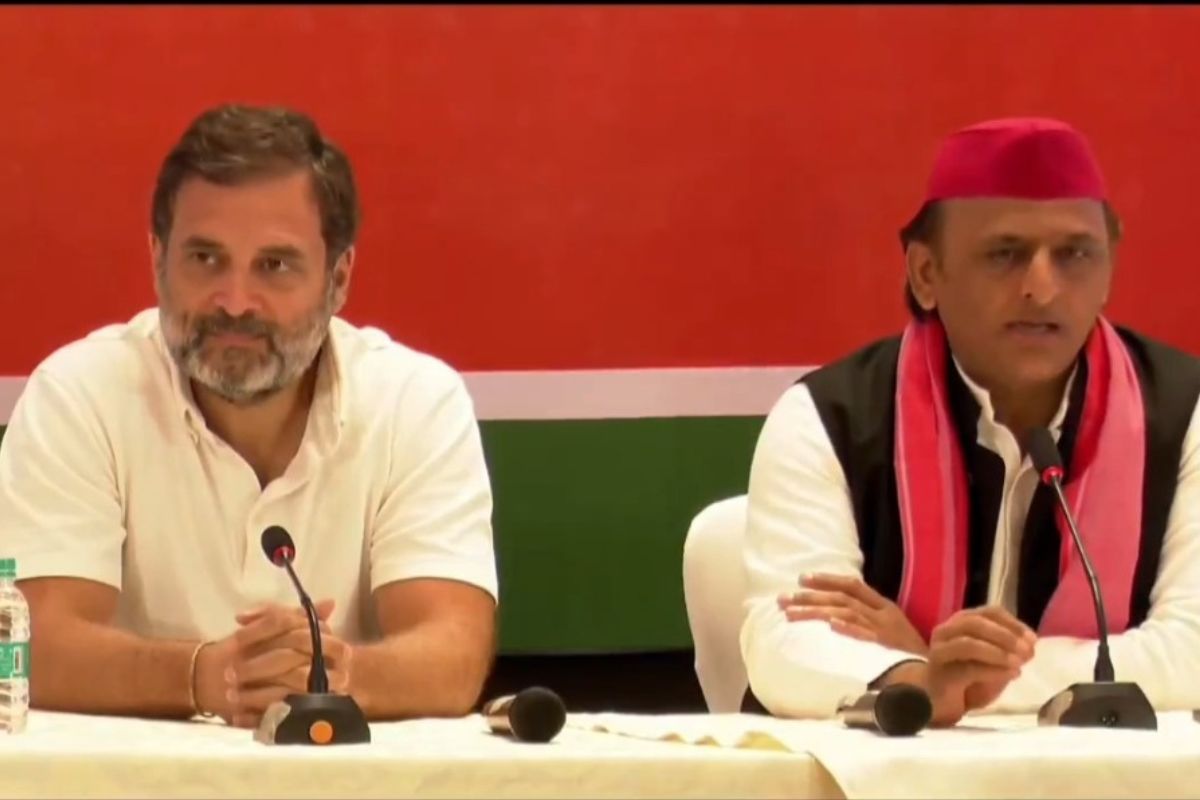Alliances often shape the contours of electoral battles, and the saga in Uttar Pradesh stands as a testament to this reality. The recent convergence of interests between the Samajwadi Party (SP) and the Congress heralds a strategic shift that could redefine the political landscape of the state. As Uttar Pradesh braces for the electoral tussle in the three remaining phases, the SP-Congress alliance has embarked on a journey that mirrors the BJP’s playbook from previous campaigns.
By targeting non-Yadav OBCs and non-Jatav Dalits, they aim to expand their support base beyond traditional vote banks. This calculated move signifies a departure from conventional strategies, as both parties seek to navigate the intricate web of caste dynamics that permeate Uttar Pradesh politics. Central to this alliance’s strategy is the allocation of seats and the concerted effort to ensure cross-voting in their favour. With the SP leaving 17 Lok Sabha seats for its ally in the INDIA Alliance and the Congress reciprocating by not fielding candidates in 63 seats, the stage is set for a symbiotic relationship aimed at maximising electoral gains. This strategic collaboration underscores a pragmatic approach aimed at consolidating their respective support bases and countering the formidable BJP machinery. However, beyond the arithmetic of seat-sharing lies a deeper narrative of political realignment and ideological convergence. The joint outreach efforts of the SP and Congress reflect a nuanced understanding of the evolving socio-political landscape, wherein traditional fault lines are giving way to new alliances forged in the crucible of electoral pragmatism. At the heart of this alliance lies a shared vision of countering the politics espoused by the BJP. The spectre of constitutional amendments looms large in the narrative, as leaders from both parties caution against the BJP’s alleged agenda of altering the foundational principles of India’s democracy. By invoking the rhetoric of safeguarding the Constitution and preserving the ethos of social justice, the alliance seeks to mobilise support across caste and religious lines. Furthermore, the inclusion in the joint campaign of Congress president Mallikarjun Kharge, a prominent Dalit leader, underscores the alliance’s attempt to address the concerns of marginalised communities.
Advertisement
His presence on the campaign trail sends a powerful message of inclusivity and representation, challenging the BJP’s hegemony over Dalit politics in the state. As the electoral battle intensifies, the SP-Congress alliance faces formidable challenges on multiple fronts. The BJP’s formidable electoral machinery and the presence of the Bahujan Samaj Party pose a formidable challenge to their electoral ambitions. Moreover, the complexities of caste arithmetic and the fluidity of electoral dynamics in Uttar Pradesh necessitate a nuanced and adaptive approach. However, as with any political alliance, challenges abound. The delicate balance of power-sharing, ideological coherence and the ever-present spectre of opportunism loom large. The success of the SP-Congress alliance hinges not only on electoral arithmetic but also on its ability to navigate these treacherous waters with finesse and integrity











